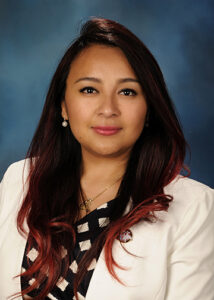SPRINGFIELD, Ill. – Health care professionals will regularly train in best practices for working with patients of diverse backgrounds under a new law introduced by state Rep. Dagmara “Dee” Avelar, D-Bolingbrook.
“Everyone deserves health care provided in a manner that is consistent with an equitable standard and that is conscious and respectful of their cultural traditions,” Avelar said. “Sadly, we still see race-and-culture disparities in access and quality of care and even in how providers interact with patients. That’s why we knew that more had to be done to ensure providers are aware of their important responsibilities in this area.”
Avelar’s House Bill 2450 includes one hour of cultural competency training as part of health care workers’ annual continuing education standards. The measure also gives them more time to complete most requirements. Implicit bias and sexual harassment training must still be completed every licensure cycle. The new requirement will apply to license renewals occurring on or after Jan. 1, 2025.
The bill was signed into law by Gov. J.B. Pritzker on Aug. 11.
“House Bill 2450 will ensure that health care providers are equipped with critical information and tools to deliver culturally competent care for the diverse communities they serve, particularly communities that have been marginalized in the health care system,” said Mony Ruiz-Velasco, Deputy Director at Equality Illinois, which supported the bill. “We thank you, Gov. Pritzker, for approving this important legislation that keeps Illinois moving forward. We also appreciate the leadership of our legislative sponsors, Sen. Ram Villivalam and Rep. Dagmara Avelar, for their fierce championing of this important legislation with overwhelming bipartisan support.”
“Ensuring cultural sensitivity in any society is always a continuous task. There’s always more that must be done and that can be done,” Avelar said. “But step one of solving any problem is to make sure that involved parties know about the problem and can recognize their role in addressing it. My hope is that that’s what we’ve helped accomplish here.”
